Is drinking coffee part of your daily grind? While one of the most common (and arguably worshipped) beverages in the world, in excess this caffeine-rich drink might cause a latte problems for some. In today’s blog we explore caffeine!
Many love coffee for taste alone, while for others it’s the jot of energy received from chugging back a cuppa. This mechanism is due to the caffeine contained in this beverage, and its interactions with the body.
However, caffeine can be a bit of a double-edge sword - with the good always comes the bad. For some caffeine is an awesome aid that may help power them across a day, whereas for other its impacts may not be tolerated as well, if at all. Let’s dive into this stimulant in more detail, so you can make a decision around what’s best for you!
WHAT IS CAFFEINE?
Caffeine is a superbly popular natural stimulant, found commonly in coffee, tea and cacao plants. Around 80% (yes 80%!) of humans consume at least one caffeinated item per day, however this number rises to an even more impressive 90% in North America (1).
HOW DOES IT WORK ITS MAGIC?
Caffeine’s main impact is on the brain. It works by blocking the effects of the neurotransmitter adenosine, which otherwise makes our brain relaxed.
As the day goes on, our adenosine levels build…and build…and build. As a result we start to feel tired, and may want to even go to sleep.
Caffeine works by pushing adenosine out of the way, and instead binds to adenosine receptors, although doesn’t activate them. In doing so, it stops adenosine exerting its effect (2) - and voilà, we don’t feel as sleepy!
Alongside this, it can also increase levels of norepinephrine (aka noradrenaline - a ‘stress’ hormone that mobilises the brain and body for action!), which further compounds alertness.
One of the perks of caffeine is that its impacts are exerted pretty speedily. For example, the caffeine found in a cup of coffee will take about 20 minutes to hit the bloodstream, and an hour to hit full effectiveness! (1). That’s why some people quickly go from feeling blegh to fabulous not long after drinking a mug of coffee in the morning.
HOW MUCH IS IN THAT DRINK?
Per 240ml (around a glass), will around the following caffeine content (1):
Espresso: 240–720 mg
Coffee: 102–200 mg
Energy drinks: 50–160 mg
Brewed tea: 40–120 mg
Soft drinks: 20–40 mg
Decaffeinated coffee: 3–12 mg (yes it still contains a smidge!)
Chocolate milk: 2–7 mg.
You can also find caffeine in some foods, like dark chocolate, as well as some prescription or over-the-counter medicines.
WHAT DO WE KNOW?
There has been tonnes of research into caffeine and its impacts on humans - some really positive, some not as much. The below barely scratches the surface, but we found these studies super interesting:
A review reported that after individuals ingested between 37.5–450 mg of caffeine, they experienced improved alertness, short-term recall and reaction time (1).
As caffeine stimulates the nervous system it may increase metabolism by up to 11%, and thus fat-burning (3).
In exercise, it has shown it may improve muscle contractions and tolerance to fatigue(1). This makes caffeine quite a popular pre-workout!
A study found that excess caffeine consumption can lead to symptoms similar to psychiatric conditions including sleep and anxiety disorders, increasing hostility, anxiety and even psychotic symptoms (4).
Studies have shown that coffee drinkers nay have up to a 65% lower risk of developing Alzheimer's (5) (6).
HOW MUCH PER DAY?
Caffeine is generally considered safe, but it’s good to keep in mind that it is additive. Furthermore, some peoples genes may make them more sensitive to its impacts (1).
Some side effects of caffeine intake are linked to the following, which may occur in some due to genetic susceptibility/lifestyle/health/caffeine intake/current medication use:
Generally it’s recommenced we do not consume more than 400mg/day, and that an intake to this is safe (6). Depending on your type of cuppa, this would equate to 2-4 cups of coffee per day. If you’re pregnant, it is best to limit caffeine as much as possible.
However, you know best how you feel on caffeine. If you feel it may be responsible for some of the side effects above, try reducing or minimising your intake and see how you feel - you can always welcome it back in! If you love the taste of coffee, but don’t want to ever give it up trial out decaf.
Cheers!
This blog was written especially for our friends at Westpac NZ, who we’re excited to be assisting with their workplace wellbeing this year. It’s thrilling to see a company go the extra mile for their staff!



